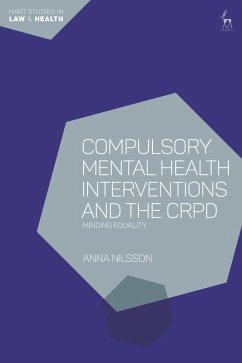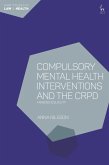This book delineates the scope of permissible compulsory mental health interventions under the Convention on the Rights of Persons with Disabilities (CRPD).
The initial impetus for this study was provided by a conflict between two competing positions within the current debate over the future of coercive psychiatry. According to one position, defended by the CRPD Committee, among others, compulsory mental health care necessarily violates the prohibition of discrimination. According to the competing position, supported by the vast majority of states, compulsion is sometimes necessary to protect health and life and, if coupled with appropriate legal safeguards, it is lawful under such circumstances. This book disputes both positions and argues that the scope of permissible compulsory care can be identified using proportionality reasoning.
Drawing on the work of Robert Alexy, it develops a framework for proportionality assessments within the context of non-discrimination. The framework can assist decision-makers to design principled and evidence-based mental health care regimes. This book thus provides a new way forward for states parties looking to reform their mental health care regimes and to improve compliance with the CRPD. It will appeal to academics and practitioners engaged in mental health reform in the post-CRPD era.
The initial impetus for this study was provided by a conflict between two competing positions within the current debate over the future of coercive psychiatry. According to one position, defended by the CRPD Committee, among others, compulsory mental health care necessarily violates the prohibition of discrimination. According to the competing position, supported by the vast majority of states, compulsion is sometimes necessary to protect health and life and, if coupled with appropriate legal safeguards, it is lawful under such circumstances. This book disputes both positions and argues that the scope of permissible compulsory care can be identified using proportionality reasoning.
Drawing on the work of Robert Alexy, it develops a framework for proportionality assessments within the context of non-discrimination. The framework can assist decision-makers to design principled and evidence-based mental health care regimes. This book thus provides a new way forward for states parties looking to reform their mental health care regimes and to improve compliance with the CRPD. It will appeal to academics and practitioners engaged in mental health reform in the post-CRPD era.









